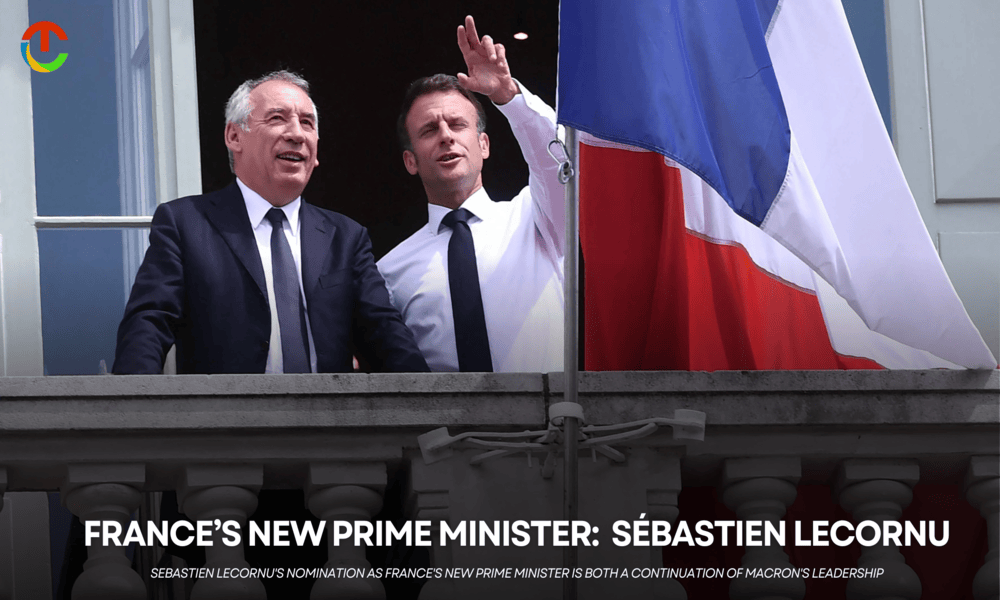Key Highlights:
-
President Emmanuel Macron appoints Sebastien Lecornu as France’s new Prime Minister.
-
Lecornu, a close ally of Macron, takes charge at a politically sensitive time.
-
The move signals continuity in Macron’s government strategy.
-
Analysts see Lecornu’s appointment as a balancing act ahead of upcoming challenges.
In a huge political step, French President Emmanuel Macron has nominated Sebastien Lecornu as the country’s new prime minister. Macron’s selection represents a smart decision to bring in a valued confidant as the country faces domestic and foreign challenges.
Lecornu, 38, has held many high-level political roles, most recently as Minister of the Armed Forces. His rise demonstrates Macron’s desire for loyalty, stability, and demonstrated administration expertise. Political watchers believe the move was carefully timed as Macron wants to consolidate his power in the last months of his presidency.
France’s New Prime Minister and Macron’s Strategy
The selection of Lecornu reflects Macron’s intent to project continuity rather than disruption. By choosing someone deeply familiar with the inner workings of his administration, Macron avoids unsettling the balance within his government. This decision also shields his leadership from potential rivalries that could have emerged with a less familiar face at the helm.
Lecornu has been widely recognized for his pragmatic approach and his ability to navigate complex policy matters. During his tenure as defense minister, he oversaw sensitive military operations and defense modernization plans, earning him credibility within both political and military circles. This experience is expected to guide him in steering government affairs with resilience and decisiveness.
Analysts suggest the appointment is also a message to the public and opposition forces: Macron is not seeking major ideological shifts but rather stability and continuity. At a time when political tensions, economic reforms, and public discontent pose challenges, Lecornu’s leadership will be tested almost immediately.
Domestic and International Implications
Domestically, Lecornu will face pressure over economic reforms, labor policies, and social unrest that have periodically surfaced in French cities. His leadership style, often described as firm but approachable, will play a key role in shaping public confidence. Maintaining a balance between pushing reforms and addressing citizens’ concerns will define his early months in office.
On the international stage, France continues to play a leading role in European security, global diplomacy, and climate initiatives. Lecornu’s background in defense equips him with a unique advantage in coordinating France’s foreign policy priorities. Observers note that his ability to strengthen alliances, particularly within the European Union, will be closely watched.
The appointment also arrives as Macron looks to cement his political legacy. With his presidential term nearing its final years, installing a loyal and competent ally as prime minister ensures smoother governance. It also allows Macron to focus on international diplomacy, while Lecornu handles the daily complexities of domestic politics.
Conclusion
Sebastien Lecornu’s nomination as France’s new Prime Minister is both a continuation of Macron’s leadership vision and a calculated decision to preserve political stability. As he takes on the post, Lecornu bears the weight of public expectations, pressing reforms, and international duties. It remains to be seen whether this new chapter will stabilize French politics or provoke new controversies, but Macron’s confidence in Lecornu has firmly placed him at the core of France’s political future.




